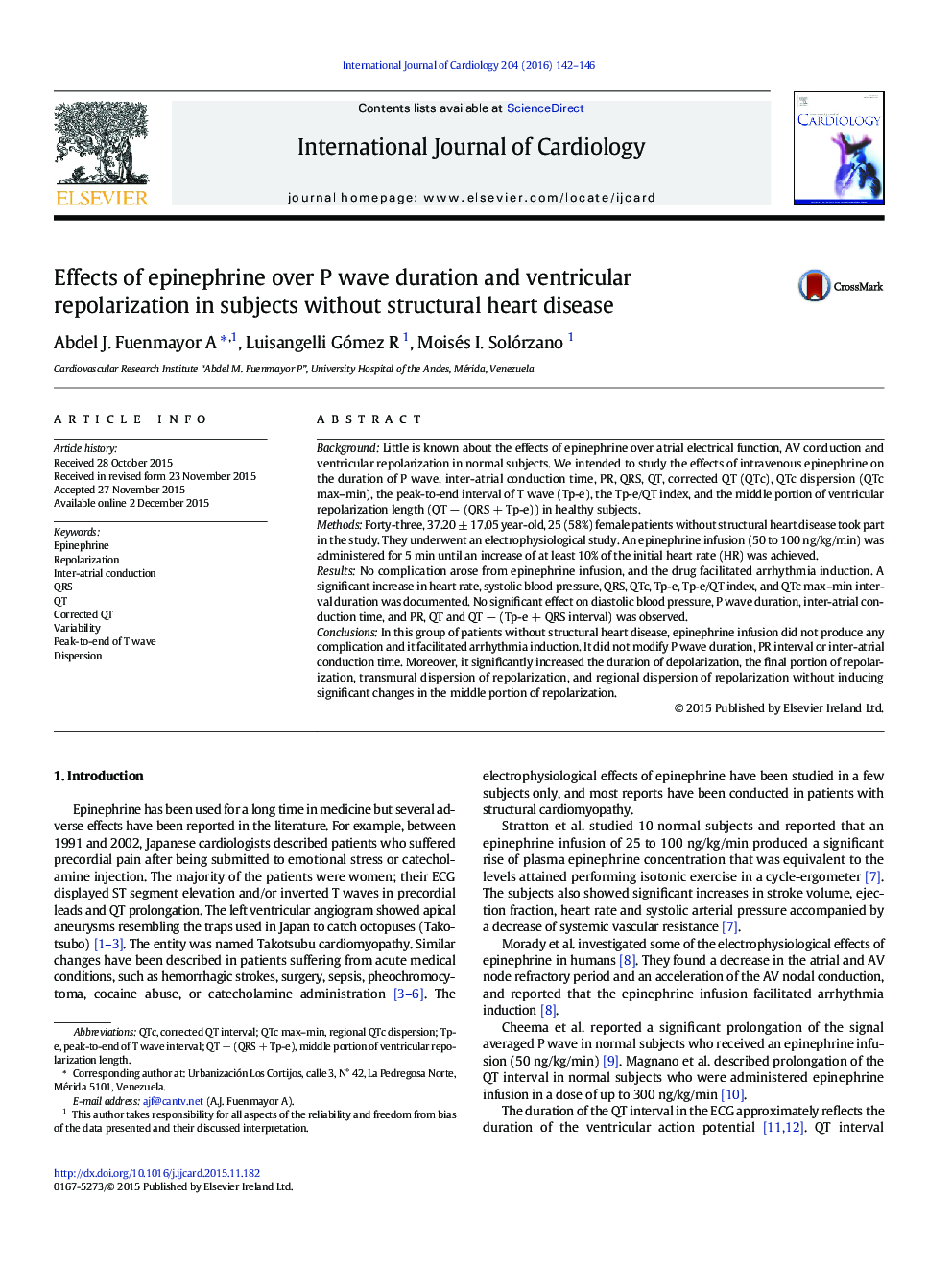| Article ID | Journal | Published Year | Pages | File Type |
|---|---|---|---|---|
| 2928681 | International Journal of Cardiology | 2016 | 5 Pages |
BackgroundLittle is known about the effects of epinephrine over atrial electrical function, AV conduction and ventricular repolarization in normal subjects. We intended to study the effects of intravenous epinephrine on the duration of P wave, inter-atrial conduction time, PR, QRS, QT, corrected QT (QTc), QTc dispersion (QTc max–min), the peak-to-end interval of T wave (Tp-e), the Tp-e/QT index, and the middle portion of ventricular repolarization length (QT − (QRS + Tp-e)) in healthy subjects.MethodsForty-three, 37.20 ± 17.05 year-old, 25 (58%) female patients without structural heart disease took part in the study. They underwent an electrophysiological study. An epinephrine infusion (50 to 100 ng/kg/min) was administered for 5 min until an increase of at least 10% of the initial heart rate (HR) was achieved.ResultsNo complication arose from epinephrine infusion, and the drug facilitated arrhythmia induction. A significant increase in heart rate, systolic blood pressure, QRS, QTc, Tp-e, Tp-e/QT index, and QTc max–min interval duration was documented. No significant effect on diastolic blood pressure, P wave duration, inter-atrial conduction time, and PR, QT and QT − (Tp-e + QRS interval) was observed.ConclusionsIn this group of patients without structural heart disease, epinephrine infusion did not produce any complication and it facilitated arrhythmia induction. It did not modify P wave duration, PR interval or inter-atrial conduction time. Moreover, it significantly increased the duration of depolarization, the final portion of repolarization, transmural dispersion of repolarization, and regional dispersion of repolarization without inducing significant changes in the middle portion of repolarization.
